Spring Break 2021: This Might Actually Happen
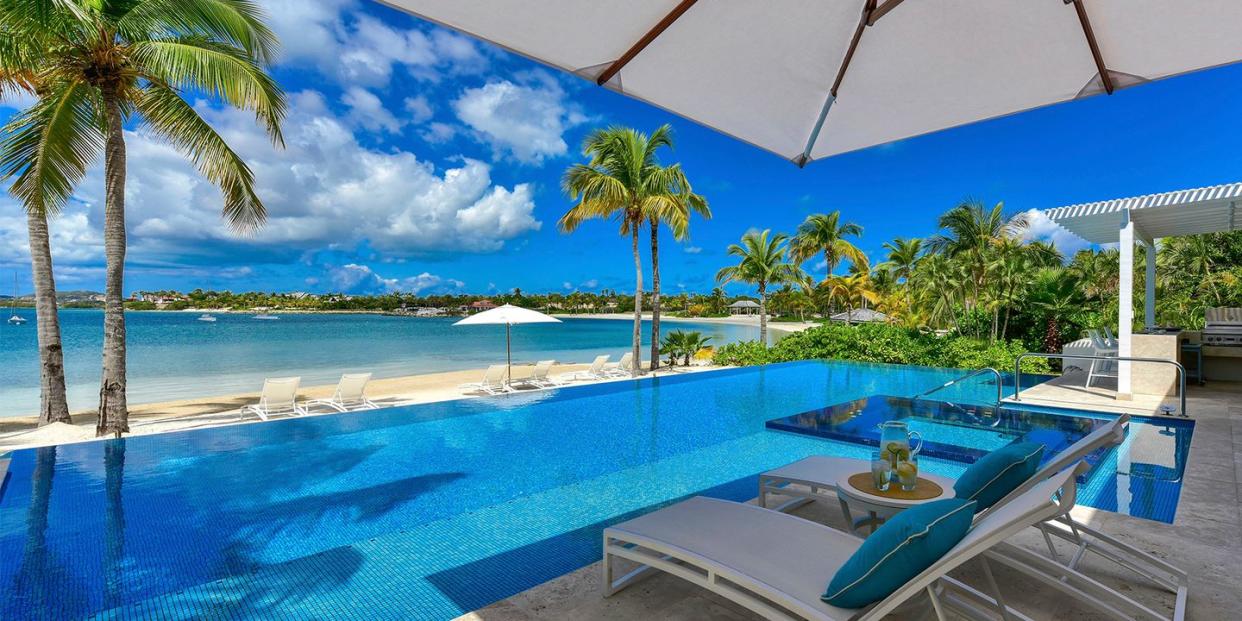
Does spring break by the sea—swimming, sand, sundowners—seem to you more a right than a privilege? Aghast at the prospect of being denied it this year? No need for guilt: The desire to get to water—be it ocean, lake, or pool—is in your genes, baby, an urge born of a primordial survival instinct. “All our senses respond positively to water,” says marine biologist Wallace J. Nichols, author of Blue Mind, because it’s an evolutionary trigger “telling your brain you’re in the right place.”
The Caribbean, of course, has long been that place. It has been opening slowly to Americans over the last few months, but there is a thicket of Covid-era regulations to consider—not because cases are high but because they’re low, and the islands want to keep it that way. And there are many different governments involved. “Every island is responsible for creating its own reopening plan,” says Lindsey Epperly of Epperly Travel, who specializes in beach destinations worldwide, “and we’re seeing those plans vary pretty dramatically.”
If you want to avoid searching the tourism website of every country/island you're interested in, one excellent place to look is this beast of an article by Brook Wilkinson, editor at WendyPerrin.com: "The Countries That Have Reopened to U.S. Travelers With No 14-Day Quarantine and What You'll Find There." It is arranged regionally, and Wilkinson updates the information.
And yes, there's a new wrinkle (in case you missed it): A CDC mandate, effective January 26, requires all international travelers coming into the United States to show proof of a negative Covid-19 test administered within three days prior to their arrival on U.S. soil. Don't despair—it doesn't mean you'll need to ruin your last days on the beach searching for a testing site: Many hotels and resorts in the Caribbean have already started providing on-property testing. Some properties provide this as a complimentary service, others at a cost. "The kinds of tests available at each resort, as well as pricing, is evolving every day," says Epperly. An excellent single source for updated information is this article in Travel Weekly, specifically covering the properties in the Caribbean and Mexico.
That said, here is a sampler of islands we like and places to stay we recommend—all worth the extra steps. Here comes then sun....
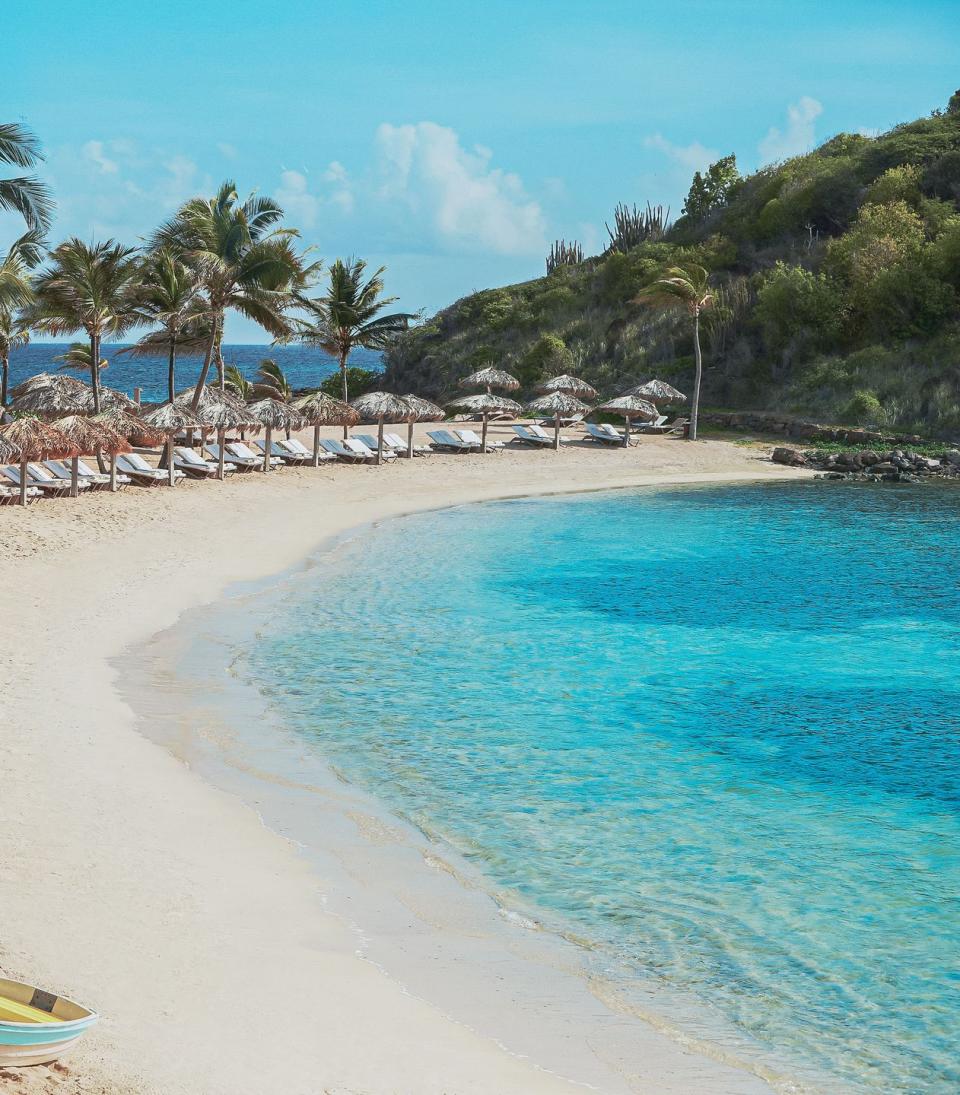
St. Bart’s
It is among the most accessible of the islands, requiring just a negative PCR test within 72 hours before your departure flight and a possible health screening upon arrival, but no quarantine. (Stay longer and you’ll need to test again on day 8—no big deal.) “St. Bart’s is 30 percent of our new business,” says Jack Ezon of Embark Beyond. Coincidentally, Le Guanahani, the only full-service resort on the island, is reopening this spring (as a Rosewood) after a three-year renovation. Some suites now have new pools of their own, although the property already offers plenty of seclusion thanks to its location: on a private peninsula, white sand beaches on both sides, the sea breezes doing their salubrious thing. Prefer a standalone place? The villa rental agencies Inspirato and Wimco have partnered with private aviation providers Wheels Up and Tradewind Aviation, respectively, so they can also deliver you to your island home in near isolation.
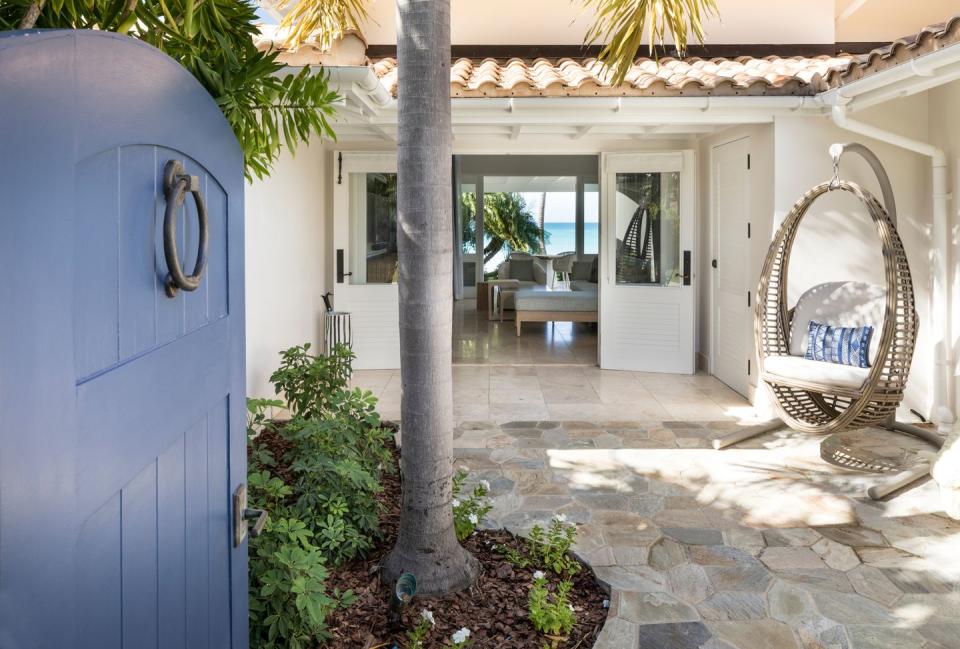
Antigua
This island, Epperly says, “has been reopening carefully, and some people feel more comfortable with its preflight testing requirement”—not the more usual 72 hours prior to departure from the U.S., but seven days, so there’s less last minute uncertainty about your test results. And there’s big hotel news on Antigua: Jumby Bay Resort, the Caribbean’s most exclusive all-inclusive, has just reopened as part of the Oetker Collection (which includes the Riviera’s Hotel du Cap-Eden-Roc). It’s located on its own 300-acre island with 22 staffed residences available for rent (plus the resort’s 28 suites and villas), and it has a farm, a turtle sanctuary, and a dreamy meadow with grazing sheep, which you’re guaranteed to pass often on your golf cart or bike: In true private enclave style, Jumby Bay is carless and keyless.
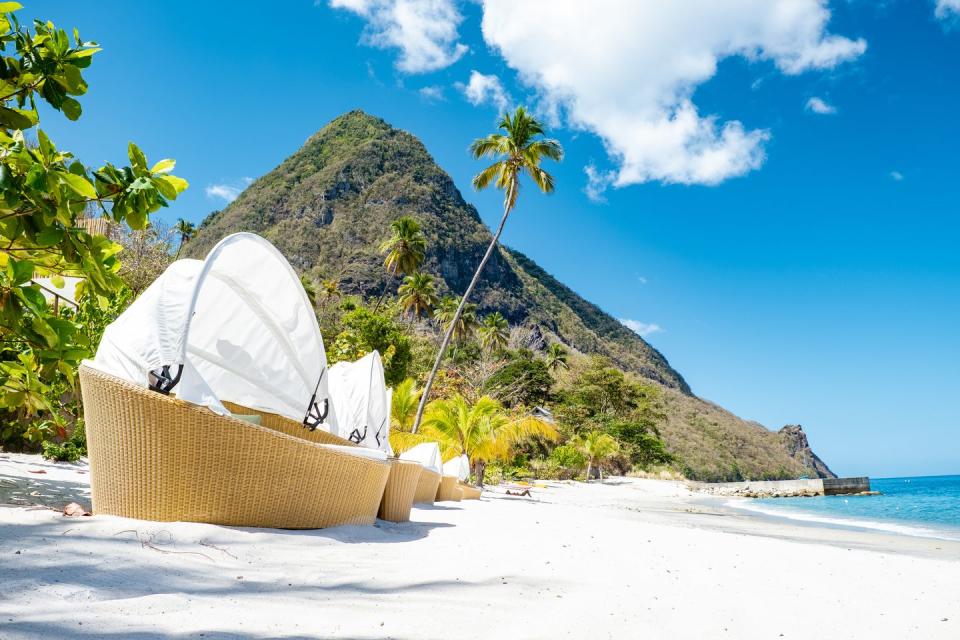
St. Lucia
Like Antigua, St. Lucia requires a negative PCR Covid-19 test within seven days prior to your day of travel (not three). You must also show proof of confirmed reservations at one or two of their "Covd-19 certified hotels." (Many hotels and resorts are so certified—meaning that the government has deemed them safe to accept guests, with all protocols in place.) We especially like: Sugar Beach, A Viceroy Resort, which has a lovely beach situated right between the two Pitons, St. Lucia's dramatic, defining, greenery and-hiking-trails-covered volcanic "cones" and nearby Jade Mountain, where suites are open on one side to the outdoors, come with their own infinity pool on their own private outdoor living area, and have probably the most dramatic views in the Caribbean—from on high, of both Pitons and out to sea. (And both now have Covid-19 testing facilities.)
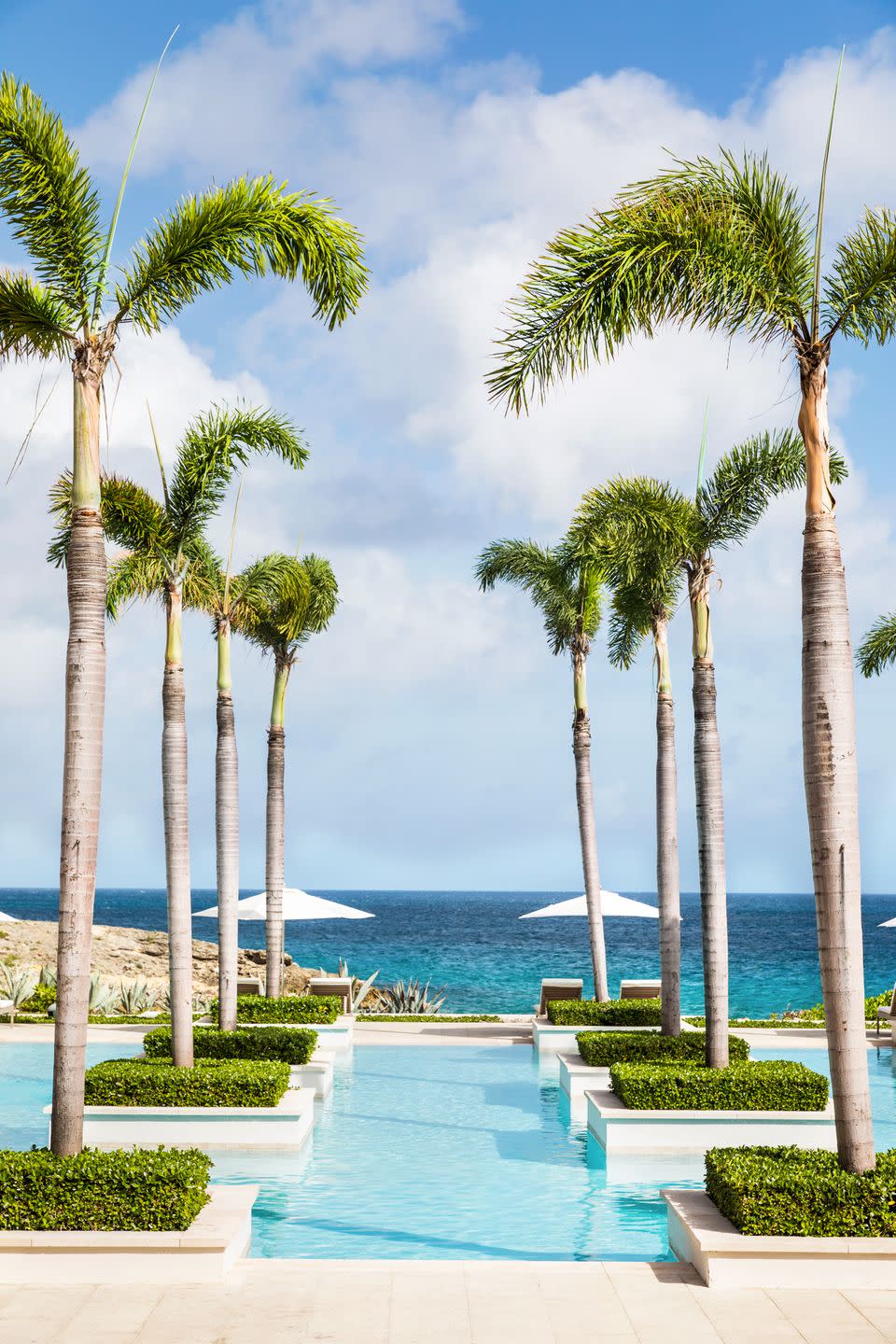
Anguilla
This sliver of an island with probably one of the lowest number of Covid cases since lockdown (often zero) does make you jump through hoops to enter. Go to ivisitanguilla.com for the many details, including an on-island “bubble” of “safe environment certified” restaurants, excursion purveyors, and cars and drivers, which you can avail yourself of, thus avoiding a strict quarantine. It’s so worth it, as Anguilla’s beaches are nonpareil, and it has some of the Caribbean’s premier hotels, including Belmond Cap Juluca (which now offers on-site Covid-19 testing), Four Seasons, and Malliouhana.
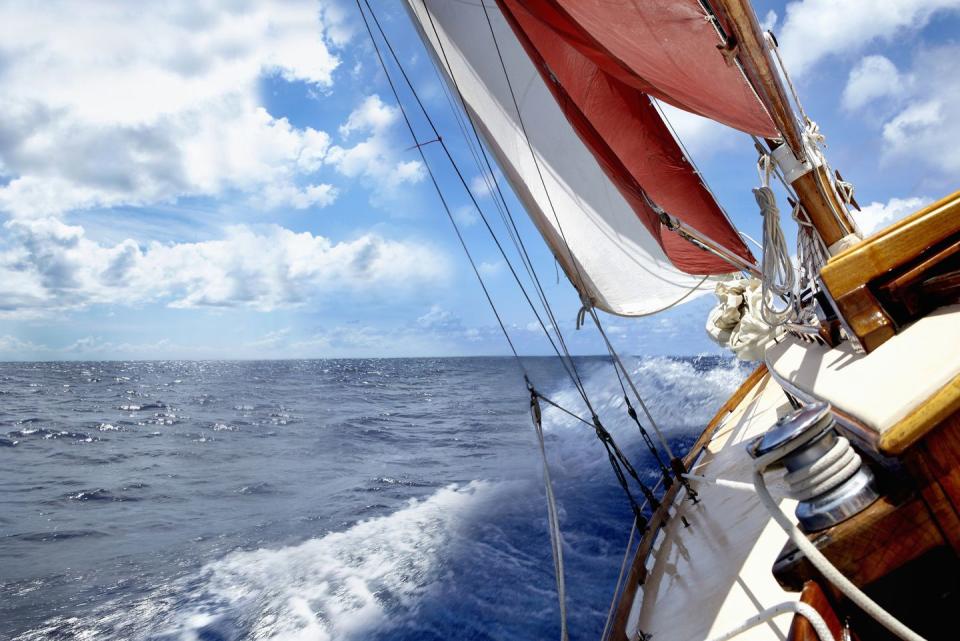
Yacht Charters
Then there’s the yacht charter route. “It’s hot,” says Northrop & Johnson’s John Cichanowicz, “because you can be free-spirited. Charter a yacht from St. Martin, say, and just go—anywhere.” If you stay on the vessel, treating it like a floating villa, you don’t have to worry about any island’s protocols. “You can easily spend two weeks, a month aboard,” says Mary Crowley, founder of Ocean Voyages and a global yacht chartering specialist. “Many vessels have endless water toys, plus spas, music, entertainment. And isn’t the beauty of being in the Caribbean to experience the water anyway?” If you do want some time on land--during, pre, or post your charter--she currently recommends yachting itineraries in these three island groups: the U.S. Virgin Islands (including St. Thomas, St. John, and various small isles near them); Antigua and Barbuda; and the so-called "French bubble" of St. Martin, St.Barts, Martinique, and Guadeloupe. Once you've gone through arrival formalities at one island in a given group, you're free to explore the others.
Making things easier still: “We now leave islands of embarkation and disembarkation ‘to be confirmed’ on all contracts,” Cichanowicz adds, “because of the risk of changing entry rules. But we found that shifting pickups and drop-offs are not an issue. Most people are flying private to and from their yacht anyway.”
Now that’s privilege.
A version of this story appears in the February 2021 issue of Town & Country. SUBSCRIBE NOW
You Might Also Like


